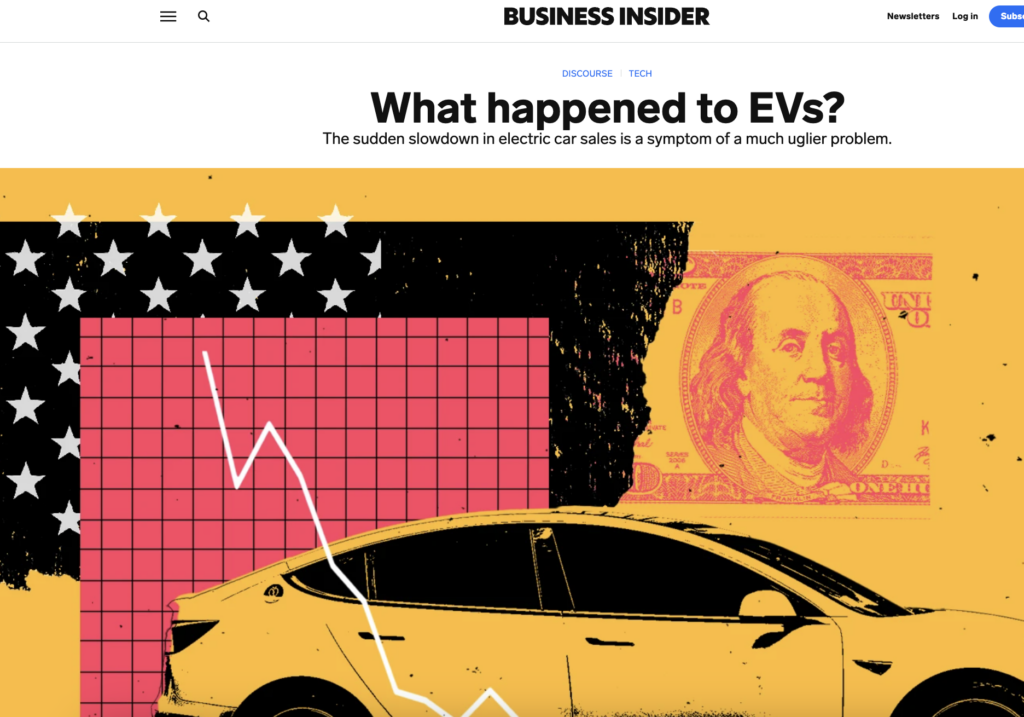Auto Dealers Intensify Pushback Against Electric Vehicle Regulations

Table of Contents
Financial Burden of EV Infrastructure Investment
One of the most significant hurdles facing auto dealers is the substantial financial burden associated with adapting their infrastructure to accommodate electric vehicles. The transition to EVs requires significant investment in new infrastructure, including the installation of EV charging stations and the upgrading of service facilities to handle the unique maintenance requirements of electric cars. These costs are substantial, especially for smaller dealerships with limited resources. The return on investment (ROI) for these upgrades remains uncertain, particularly given the relatively low current adoption rate of EVs in many markets.
- High cost of installing Level 2 and DC fast chargers: The price of installing charging stations, especially the faster DC fast chargers, can run into tens of thousands of dollars per station, requiring significant capital investment.
- Need for specialized EV technician training: Dealerships need to invest in training their technicians to diagnose and repair EV-specific components, adding to training budgets.
- Upgrading service bays and equipment: Service bays may need modifications to accommodate high-voltage batteries and specialized tools for EV maintenance, incurring substantial renovation costs.
- Potential for low initial demand impacting ROI: The return on this investment is highly dependent on the rate of EV adoption in the local area. Low demand could significantly delay or even prevent a positive ROI.
- Lack of government support or incentives for infrastructure upgrades: The absence of sufficient government support and incentives for dealerships to upgrade their infrastructure is a major concern, leaving dealers to bear the full financial burden.
Challenges in Sales and Marketing of Electric Vehicles
Beyond infrastructure, auto dealers face significant challenges in the sales and marketing of electric vehicles. Unlike gasoline-powered cars, EVs present unique consumer concerns, requiring specialized sales training and targeted marketing strategies.
- Need for specialized sales staff training on EV technology and features: Sales staff needs to be thoroughly trained on the technical aspects of EVs, including battery technology, charging processes, range, and available features.
- Educating customers on charging options and range limitations: Addressing customer concerns about range anxiety and the availability of charging infrastructure is crucial for successful EV sales.
- Addressing consumer concerns about charging infrastructure and accessibility: Many consumers are hesitant about buying EVs due to concerns about the availability and convenience of public charging stations.
- Marketing strategies to overcome common EV misconceptions: Effective marketing campaigns are necessary to dispel common myths and misconceptions surrounding EVs and to educate consumers on their benefits.
- Difficulty in trading in/appraising used electric vehicles compared to gasoline cars: The used EV market is still developing, creating challenges in evaluating and appraising trade-ins.
Concerns Regarding Government Mandates and Deadlines
Dealerships are also expressing deep concerns about government mandates and deadlines for EV sales quotas. Many feel these targets are unrealistic given the current level of consumer demand and the lack of supporting infrastructure.
- Concerns about penalties for not meeting sales targets: The potential for significant penalties for failing to meet mandated sales quotas creates considerable financial risk for dealerships.
- Lack of consumer demand for electric vehicles in certain regions: Consumer demand for EVs varies widely across different geographic areas, making it difficult for some dealers to meet mandated sales targets.
- Insufficient charging infrastructure to support mandated EV sales: The lack of sufficient public charging infrastructure in many areas makes it challenging to sell EVs and meet government mandates.
- The potential for government regulations to stifle innovation in the automotive sector: Overly stringent regulations could stifle innovation and slow down the development of better and more affordable electric vehicles.
- Unfair competition concerns related to established manufacturers with a bigger headstart in EV production: Smaller manufacturers and dealerships feel they are at a disadvantage compared to established automakers who have a significant head start in EV production.
Impact on Smaller Dealerships and Rural Communities
The impact of EV regulations is particularly acute for smaller dealerships and those located in rural communities. These businesses often lack the financial resources to invest in the necessary infrastructure upgrades and may struggle to attract customers in areas with limited charging infrastructure. The transition to EVs poses a significant threat to their economic viability and could lead to job losses in already underserved communities. This creates concerns about economic equity and accessibility.
Conclusion
The intensified pushback from auto dealers against electric vehicle regulations stems from legitimate concerns about the financial burden of infrastructure investment, the challenges in selling and marketing EVs, and the unrealistic nature of some government mandates and deadlines. A balanced approach is crucial, one that recognizes the economic realities faced by dealerships while simultaneously promoting the environmentally responsible transition to electric vehicles. The industry needs a collaborative effort between government agencies, manufacturers, and dealerships to ensure a smooth and equitable transition. We need policies that support both EV adoption and the economic viability of the automotive industry. Contact your representatives to voice your concerns regarding the impact of Electric Vehicle Regulations and advocate for sustainable and equitable policies.

Featured Posts
-
 Zoey Stark Injured During Wwe Raw Match
May 20, 2025
Zoey Stark Injured During Wwe Raw Match
May 20, 2025 -
 Drier Weather Is In Sight What To Expect
May 20, 2025
Drier Weather Is In Sight What To Expect
May 20, 2025 -
 Robert Pattinson And Suki Waterhouse A Look At Twilight Star Relationships
May 20, 2025
Robert Pattinson And Suki Waterhouse A Look At Twilight Star Relationships
May 20, 2025 -
 Aldhkae Alastnaey Yeyd Ihyae Aghatha Krysty Thlyl Tqny Wadby
May 20, 2025
Aldhkae Alastnaey Yeyd Ihyae Aghatha Krysty Thlyl Tqny Wadby
May 20, 2025 -
 How Billionaire Boys Spend Their Money Investments Philanthropy And Lifestyle Choices
May 20, 2025
How Billionaire Boys Spend Their Money Investments Philanthropy And Lifestyle Choices
May 20, 2025
